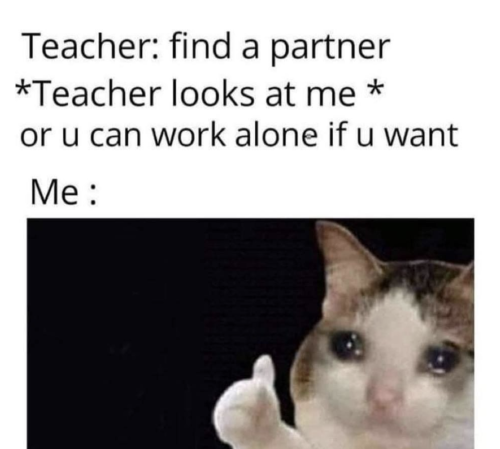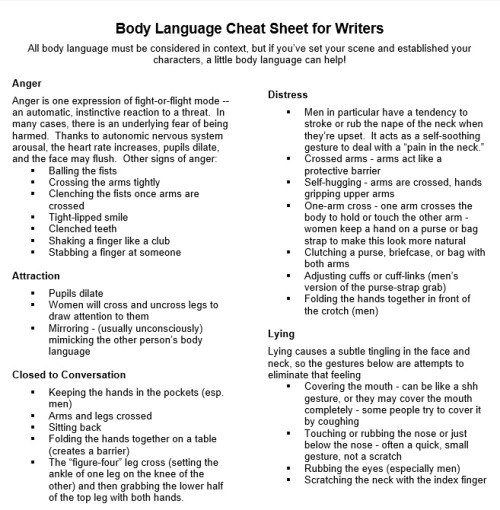How To Come Up With A Story Title
How to come up with a story title
By Writerthreads on Instagram
I’ve identified a few types of story titles, and I’ll briefly describe them below:
Common saying/phrase
Eg. When the Cows Come Home, Cruising for a Bruising
Usually, the saying might describe the events of the book or men’s something
Something with a character’s name
Eg. The Redemption of Fletcher Cheung (my old title), Harry Potter and the _______
Or literally the character’s name
Eg. Oliver Twist, Doctor Strange, Hansel and Gretel
A location
Eg. Schitt’s Creek, The Good Place, Brooklyn Nine-Nine, The Secret Garden
Choose an location where a part of the plot takes place. It would help if that location has a unique name (eg. Earhart High School would be boring).
A memorable line
Eg. The Stars are Burning (my WIP lol), To Kill a Mockingbird
Use a memorable or important line, or a version of it. Bonus points if it’s in the first or last sentence of the book!
Use an allusion
Eg. These Violent Delights, The Grapes of Wrath
An allusion is a reference to or a phrase taken from an external source. The title usually alludes to something in the plot or a main theme.
If all else fails...
Use an unusual word
Warning: this makes the title less memorable, imo
Use a song title or lyric
Warning: copyright?? Also it might be cliche.
Now that we’ve covered the main types of titles, let me give you some advice on book titles;
Long titles
They’re hard to remember and hard to type/say, which reduced visibility. Try to shorten the title if you can :)
Make it interesting
Eg. Gone With the Wind
Titles that use poetic language, vivid imagery, or a bit of mystery tend to be alluring to potential readers.
Use alliteration
Eg. The Count of Monte Cristo
Alliteration is especially popular because it’s punchy and sounds good lol.
Anyways, this is all I can think of! Comment below your book title(s) and anything I’ve missed.
More Posts from Justanothergirlsblog and Others
How I Edit A First Draft
*Repost*
What is UP y'all I got like four hours of sleep which is always fantastic! This is a wicked old post I made that the majority of y’all haven’t seen! As always, any more stuff you want to ask/add specifically feel free! As a young author myself with limited experience, I just wanted to help those who don’t really know where to start or are looking for other methods!
First, Don’t Get Discouraged!
This sounds like a basic thing, but nobody really likes editing their own stuff! It’s so easy to call it bad and just shove it in a folder to never look at again. Just remember everything you do is to make it the best it can possibly be and it’s pretty darn heccin good now! Completing drafts are fricken hard, and you’ve made it so far! Writing routines and Pinterest are my major sources of inspiration.
Read it through!
I know, it sucks. You finished your first draft—comgratulations! And you want to get the editing over with. You think to yourself, “I wrote this and I know what to fix!” Maybe for some this is true, but for people like me, I forget so much. Do not start editing during this step. It is basically just a refresher. Take notes on what to fix later (what scene feels flat, parts that are confusing, etc). The only editing I allow myself to do here is grammar and spelling. Most times you’ll see too it’s not as bad as you think it is!
How Do I Know What To Cut?
Not everthing that doesn’t work has to be cut. Recycling awesome lines that juts dont fit or even characters into different WIPS. That being said, soemtimes things just won’t work. Ask yourself these starting questions:
Does this supporting character have a purpose or can their role be taken over by a pre-existing character?
Is this action in character?
Does this scene contribute to the plot, character development, or offer a break in tension?
Work From Big To Small
You know those notes you took? The ones on plot and characterization? Fix those first. These big problems usually lead to the smaller issues or even fix them, like if a scene isn’t flowing naturally or something just fells off. If stuff doesn’t fall into place, look at the chapters before it.
Common Questions Ig
Q: Hey, Strange, what do you even know?
A: Nothing
Q: But I like this scene and I don’t want to cut it.
A: Cool. Keep it. If you like it and don’t have any doubts that it’s good, so will your readers and it will add to the book. Stuff like this can be for characterization and establishing relationships, and you can always add to scenes to make them seem more necessary.
The point is that you like your book. The point is that you are an amazing writer, even when it’s hard to believe. First drafts are usually trash, and each draft is better than the last. No draft will ever be perfect, it’s the draft that you think is the best you can do and you’re happy with that’s the final.
Writing Tip #190
Your characters should always have an agenda in every scene. Their agenda can range from something simple like wanting to get to work on time to something larger like wanting to save their mother from the underworld. Make sure you know what each character’s agenda is in every scene. Set two characters agenda’s in opposition to prompt action, move the plot forward, and set up some great opportunities for dialogue.

“I can’t stand it to think my life is going so fast and I’m not really living it.”
— Ernest Hemingway

“On earth there is no heaven, but there are pieces of it.”
— Jules Renard


Body Language Cheat Sheet for Writers
As described by Selnick’s article:
Author and doctor of clinical psychology Carolyn Kaufman has released a one-page body language cheat sheet of psychological “tells” (PDF link) fiction writers can use to dress their characters.
“I will not let anyone walk through my mind with their dirty feet.”
— Mahatma Gandhi

“People do not hurt us, our hopes from them hurt us.”
— Imam Ali
-
 wakalakaog liked this · 1 month ago
wakalakaog liked this · 1 month ago -
 heckcareoxytwit reblogged this · 1 month ago
heckcareoxytwit reblogged this · 1 month ago -
 heckcareoxytwit liked this · 1 month ago
heckcareoxytwit liked this · 1 month ago -
 antihell liked this · 1 month ago
antihell liked this · 1 month ago -
 jimmie-the-kid reblogged this · 3 months ago
jimmie-the-kid reblogged this · 3 months ago -
 theimpalatales liked this · 5 months ago
theimpalatales liked this · 5 months ago -
 auroraescritora liked this · 10 months ago
auroraescritora liked this · 10 months ago -
 kohitsuji liked this · 10 months ago
kohitsuji liked this · 10 months ago -
 vanillamidnight-us reblogged this · 1 year ago
vanillamidnight-us reblogged this · 1 year ago -
 norosesnolife liked this · 1 year ago
norosesnolife liked this · 1 year ago -
 yiiyiiyii10 liked this · 1 year ago
yiiyiiyii10 liked this · 1 year ago -
 calfwoonie reblogged this · 1 year ago
calfwoonie reblogged this · 1 year ago -
 calfwoonie liked this · 1 year ago
calfwoonie liked this · 1 year ago -
 pandorasboxofmusings liked this · 1 year ago
pandorasboxofmusings liked this · 1 year ago -
 narugelic liked this · 1 year ago
narugelic liked this · 1 year ago -
 noightwitchers liked this · 1 year ago
noightwitchers liked this · 1 year ago -
 kaiscove liked this · 1 year ago
kaiscove liked this · 1 year ago -
 thebrownleathernotebook liked this · 1 year ago
thebrownleathernotebook liked this · 1 year ago -
 transman-badass reblogged this · 1 year ago
transman-badass reblogged this · 1 year ago -
 superheroauthor reblogged this · 1 year ago
superheroauthor reblogged this · 1 year ago -
 heckcareoxytwit reblogged this · 1 year ago
heckcareoxytwit reblogged this · 1 year ago -
 dianestalgia liked this · 1 year ago
dianestalgia liked this · 1 year ago -
 miannelt liked this · 1 year ago
miannelt liked this · 1 year ago -
 cryingwriter reblogged this · 1 year ago
cryingwriter reblogged this · 1 year ago -
 bloodxhoney reblogged this · 1 year ago
bloodxhoney reblogged this · 1 year ago -
 mitsymitsytarantula3 liked this · 2 years ago
mitsymitsytarantula3 liked this · 2 years ago -
 bloodythornsandskulls liked this · 2 years ago
bloodythornsandskulls liked this · 2 years ago -
 spencecreates reblogged this · 2 years ago
spencecreates reblogged this · 2 years ago -
 motheryves liked this · 2 years ago
motheryves liked this · 2 years ago -
 rinniemybeloved liked this · 2 years ago
rinniemybeloved liked this · 2 years ago -
 genderwhoidkher reblogged this · 2 years ago
genderwhoidkher reblogged this · 2 years ago -
 genderwhoidkher liked this · 2 years ago
genderwhoidkher liked this · 2 years ago -
 burningbasementphilosopher liked this · 2 years ago
burningbasementphilosopher liked this · 2 years ago -
 thestrugglewriter liked this · 2 years ago
thestrugglewriter liked this · 2 years ago -
 901thinker reblogged this · 2 years ago
901thinker reblogged this · 2 years ago -
 neovenatorgirlteeth liked this · 2 years ago
neovenatorgirlteeth liked this · 2 years ago -
 emotionalmilkshake reblogged this · 2 years ago
emotionalmilkshake reblogged this · 2 years ago -
 scrumptiousmakerpeachhero liked this · 2 years ago
scrumptiousmakerpeachhero liked this · 2 years ago -
 ariadza-writes liked this · 2 years ago
ariadza-writes liked this · 2 years ago -
 ariadza-writes reblogged this · 2 years ago
ariadza-writes reblogged this · 2 years ago -
 buuuggaboo liked this · 2 years ago
buuuggaboo liked this · 2 years ago -
 all-the-writerly-things reblogged this · 2 years ago
all-the-writerly-things reblogged this · 2 years ago -
 pen-for-sword reblogged this · 2 years ago
pen-for-sword reblogged this · 2 years ago -
 buckethatch reblogged this · 2 years ago
buckethatch reblogged this · 2 years ago -
 arndtezra liked this · 2 years ago
arndtezra liked this · 2 years ago -
 maoyalikestowrite reblogged this · 2 years ago
maoyalikestowrite reblogged this · 2 years ago -
 bmith reblogged this · 2 years ago
bmith reblogged this · 2 years ago

I'm just a weird girl who likes to read about history, mythology and feminism.
207 posts